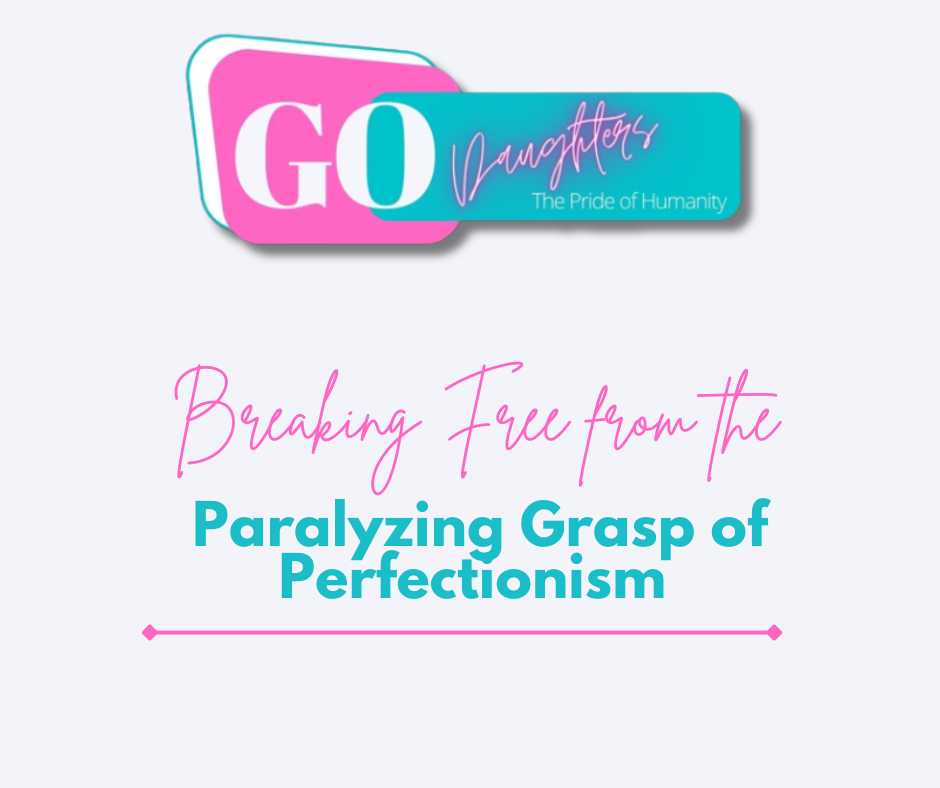
In the fast-paced world we live in today, the pursuit of perfection has become a prevalent theme. We find ourselves striving for flawlessness in every aspect of our lives – be it academics, career, relationships, or personal goals. However, what happens when this quest for perfection becomes overwhelming, hindering our progress? In this blog, we’ll delve into the phenomenon of paralyzing perfectionism, its detrimental impact on our well-being, and explore effective strategies to overcome its grip.
Understanding Paralyzing Perfectionism:
Paralyzing perfectionism is a state where the fear of making mistakes or falling short of unrealistic expectations stops us from taking action. It goes beyond the healthy drive for excellence and becomes a barrier to personal growth. Constantly fearing failure, judgment, or not meeting self-imposed standards can lead to procrastination, anxiety, and diminished self-esteem.
The Impact on Well-being:
Living under the weight of perfectionism can profoundly impact our mental and emotional well-being. The constant pressure to be flawless can induce anxiety, stress, and even depression. Moreover, it can impede creativity and innovation, as the fear of not meeting expectations stifles our willingness to take risks and explore new possibilities. Our relationships can also suffer, as perfectionism often leads to unrealistic expectations of both others and ourselves, resulting in strained interactions and missed opportunities for connection.
Recognizing Perfectionist Tendencies:
To address paralyzing perfectionism, it is essential to recognize the signs and patterns in our behavior. Some common indicators of perfectionist tendencies include:
- Setting excessively high standards for oneself.
- Overthinking and engaging in excessive self-criticism.
- Procrastination due to fear of making mistakes.
- Seeking external validation and approval.
- Difficulty delegating tasks due to a lack of trust in others.
- Avoiding challenges or new experiences to minimize the risk of failure.
Strategies for Overcoming Paralysis:
Embrace Imperfection: Recognize that perfection is an unattainable ideal and that making mistakes is a natural part of the learning process. Embrace imperfection as an opportunity for growth and learning.
Set Realistic Goals: Break down large goals into smaller, achievable tasks. Setting realistic goals allows for progress and builds momentum, boosting confidence along the way.
Challenge Negative Self-Talk: Become aware of the self-critical thoughts that fuel perfectionism. Replace them with compassionate and realistic self-talk. Remind yourself that you are worthy, capable, and deserving of success, regardless of perceived imperfections.
Emphasize Progress, Not Perfection: Shift your focus from achieving flawless outcomes to recognizing and celebrating progress. Acknowledge your efforts, no matter how small, and appreciate the journey rather than fixating solely on the end result.
Cultivate Self-Compassion: Treat yourself with kindness and understanding. Practice self-compassion by forgiving yourself for mistakes and acknowledging that everyone has limitations.
Take Action: Break the cycle of analysis paralysis by taking consistent action. Start with small steps, and as you build momentum, your confidence will grow, enabling you to overcome perfectionist tendencies.
Seek Support: Reach out to friends, family, or a trusted mentor who can offer guidance and support. Sharing your struggles and seeking perspectives from others can provide valuable insights and help alleviate the pressure of perfectionism.
Conclusion:
Paralyzing perfectionism can hinder our personal and professional growth, stifling our ability to take risks and embrace new opportunities. By recognizing the signs of perfectionism and implementing strategies to overcome it, we can free ourselves from its grip. Remember, progress and self-acceptance are far more valuable than the illusion of flawlessness. Embrace imperfection, celebrate your efforts, and allow yourself to thrive beyond the constraints of perfectionism.




